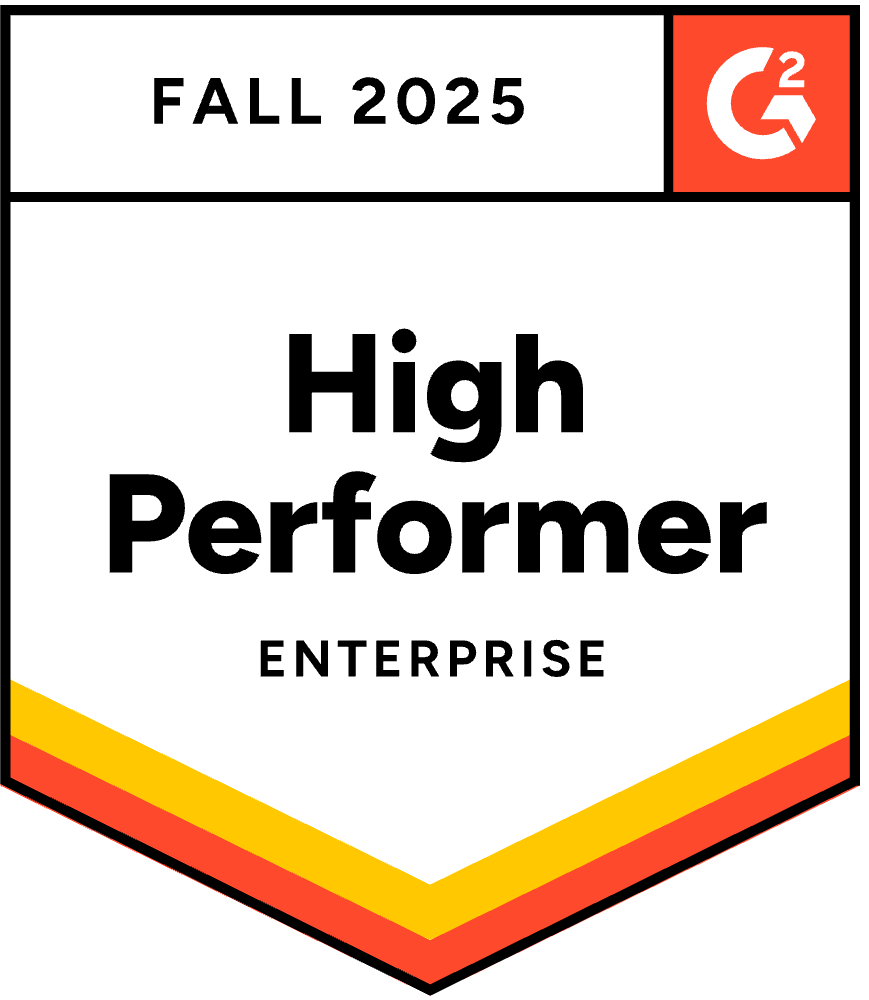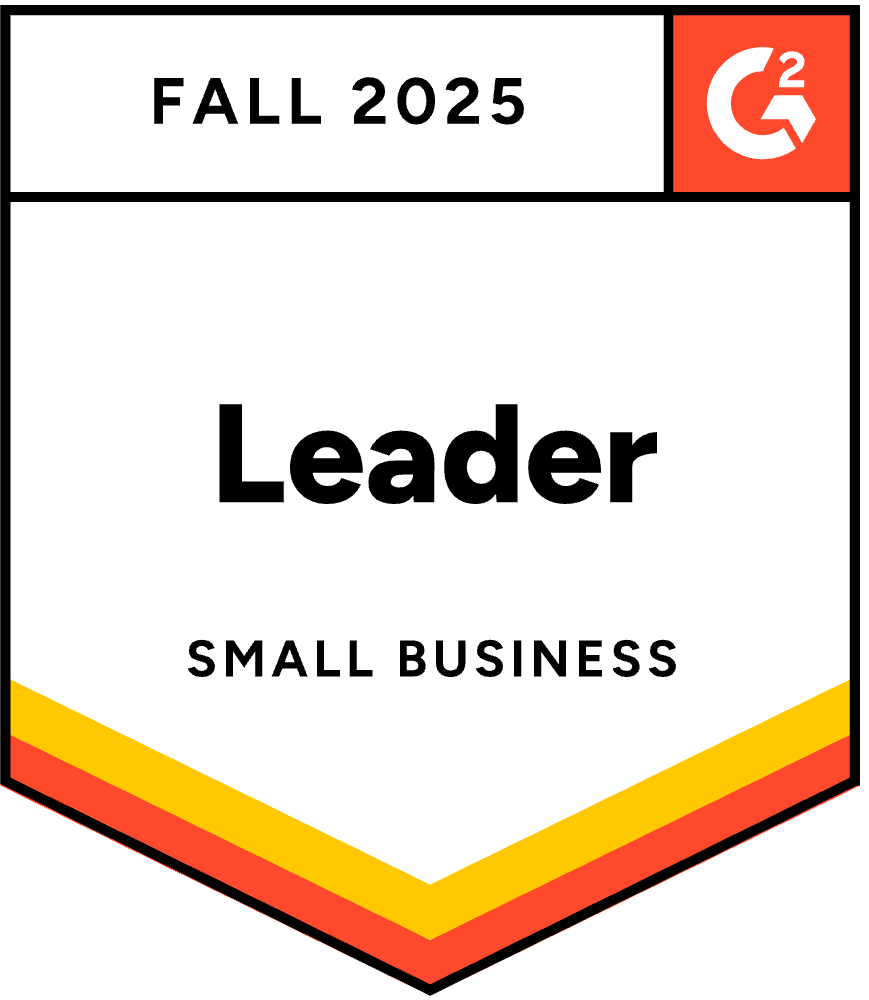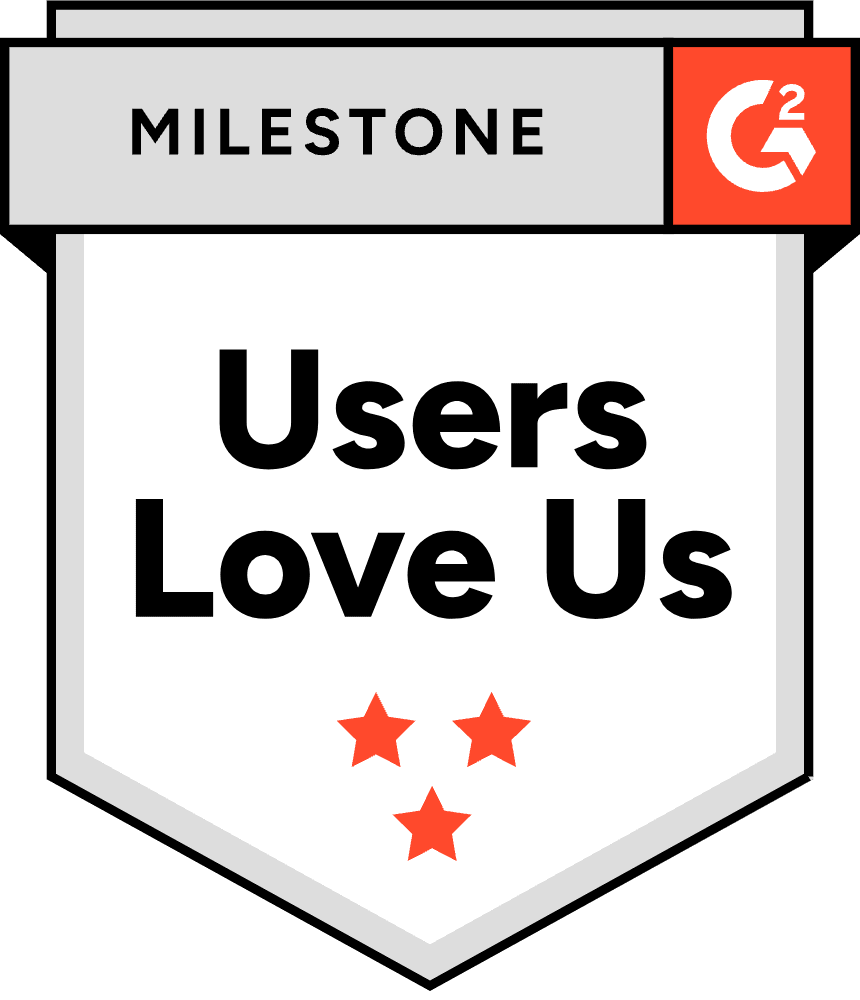Google “SEO best practices”, “SEO tips”, or any variant of these terms, and you’ll probably see a blog post by Backlinko on the first page of your search results. The man behind the business is none other than Brian Dean, an SEO expert who’s widely known for creating and popularizing the Skyscraper Technique (amongst other things).
In this UpLead Growth Chat, we sat down with Brian to pick his brain on the low-hanging fruits of SEO, what business owners get wrong about SEO, and the strategies he used to grow his site to reach over 3 million people every year. To jump to specific segments of our interview, click on the relevant links from the Table of Contents above.
Early career and personal growth
Will: You started — and subsequently gave up on — five online businesses before striking gold with a personal finance site in 2012. Tell us more about each of these businesses, and what you learnt from them.
Brian: All 5 businesses were essentially the same. But in different industries.
For example, the first website was in the nutrition niche. And the “model” was:
- Create an ebook
- Write a sales page
- Setup a shopping cart
- ????
- Make money
So yeah, I had no idea how to get traffic. Or to create a site people wanted to visit. But —
“I kept thinking that it was the product. Or the industry.”
Finally I realized that those things weren’t the problem. The lack of targeted traffic was. So my big lesson was:
“Without targeted traffic your site might as well be invisible.”
In fact, I’d say that’s the #1 thing you need to master if you want to succeed with this whole online business thing.
Will: Before you founded Backlinko, you worked as a freelance SEO consultant. What prompted your interest in SEO, and how did you get into consulting?
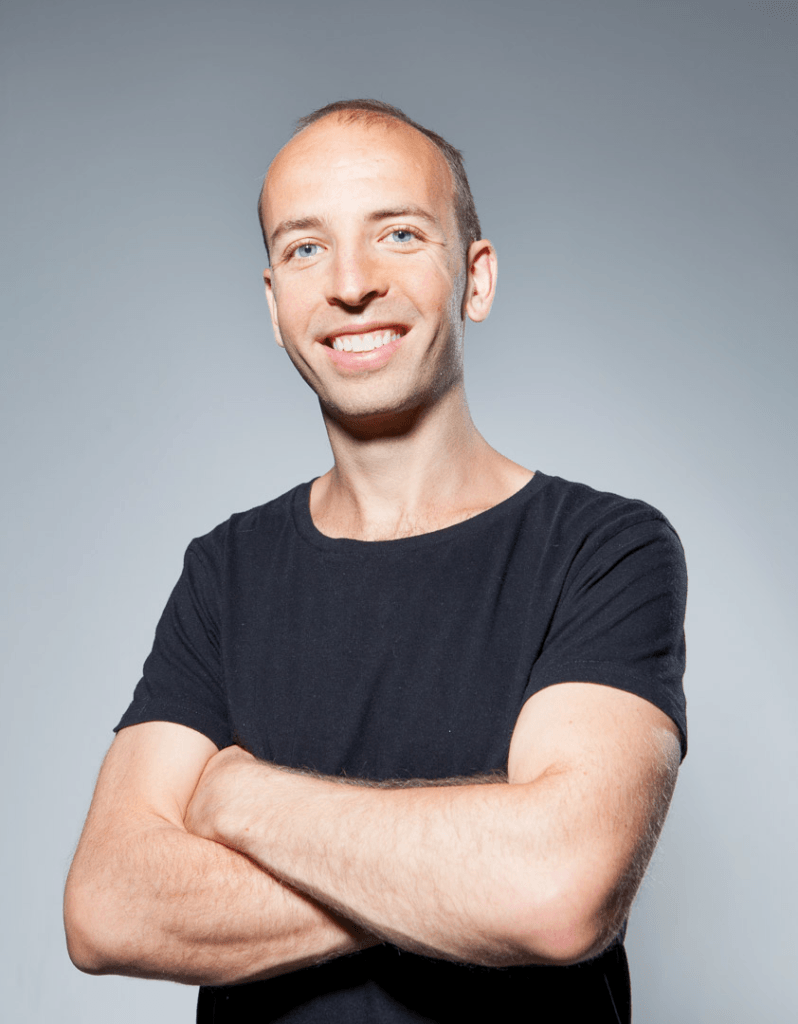
Brian: After my first few businesses failed, I realized that SEO was the key to getting lots of targeted traffic. So I read every SEO book that I could find, and pored over online marketing forums.
I started to put the pieces together with a few of my own websites. But to help bring in some cash flow, I took on SEO clients.
Will: You were doing consulting back in 2010, when SEO wasn’t huge — was it frustrating trying to get business owners to understand the importance of SEO?
Brian: Finding people that wanted higher rankings was never a problem.
“Even back in 2010, pretty much every legit business knew that SEO was important.”
That said, explaining that “SEO takes months… not weeks” was always the tough sell. That’s why I usually also worked on PPC (Google Ads) for new clients. That way they could get some early traffic while the long-term SEO stuff kicked in.
The evolution of SEO, and what entrepreneurs get wrong about SEO
Will: What was the one biggest thing that business owners got wrong about SEO back then? How about now?
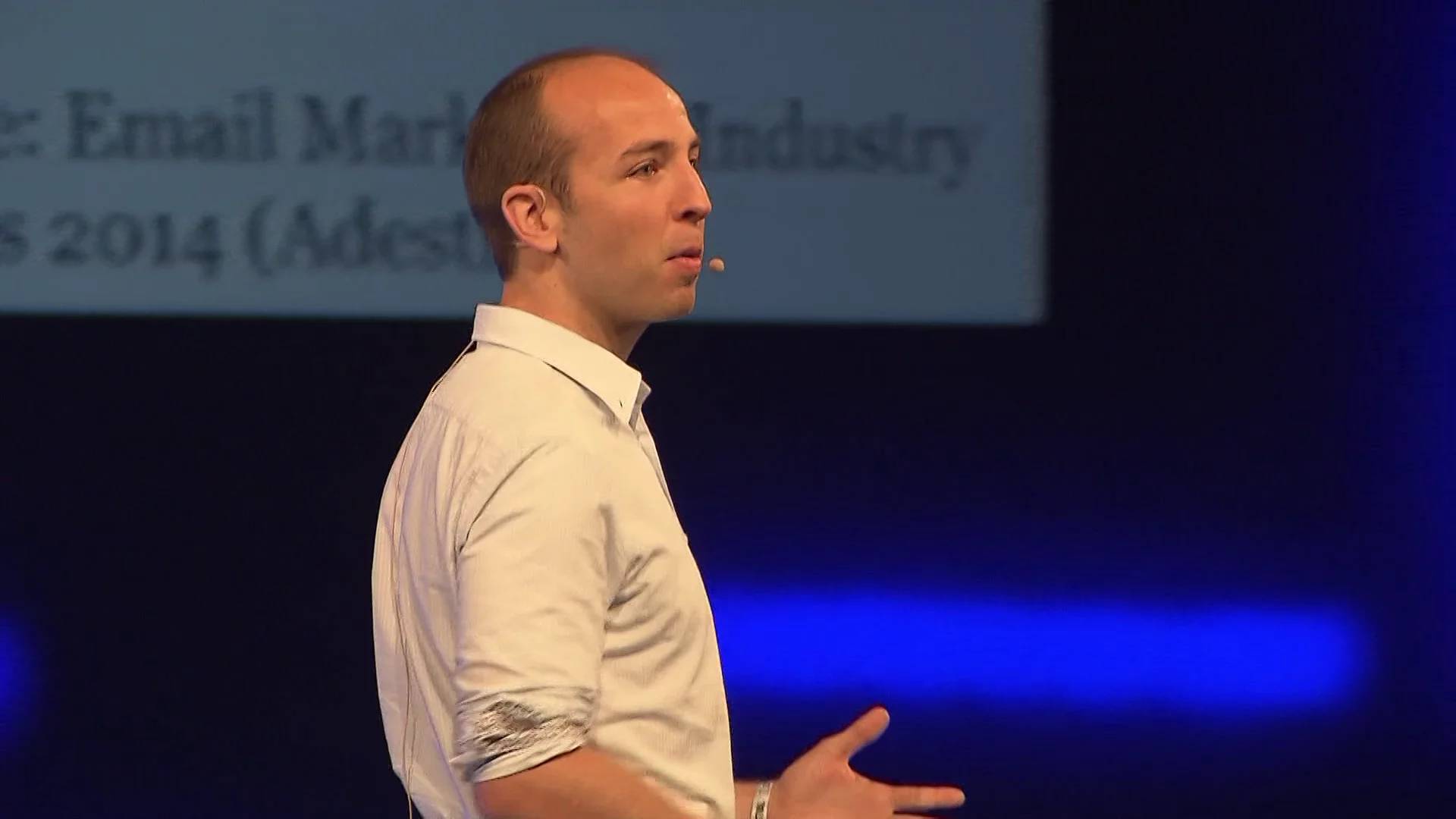
Brian: Back then the big thing was that people would want to rank for totally random keywords.
I’d have clients coming to me saying: “We want to rank #1 in Google for this”. And the keyword has almost no commercial intent and search volume. I feel like most people today understand that keyword research is super important.
“Today, I’d say the big mistake is underestimating how awesome your content has to be to rank #1.”
In other words: most people think that generic, 500-word blog posts still cut it. But the bar has gone up A LOT in recent years. Unfortunately, most publishers haven’t noticed the change.
Will: How has SEO evolved over the past decade?
Brian: The biggest change is that content is more important than a lot of the old school technical SEO stuff. Don’t get me wrong, I’m not saying that technical SEO isn’t important — because it is. But Google is now better at figuring out a website’s topic, content etc. without your help.
“All in all, today, SEO is less about optimizing your site to help Google and more about being the best result that deserves to be #1.”
Will: What are a few “low-hanging fruit” that business owners can tap on, in the context of SEO?
Brian: SEO site audits. In fact, they’re so important that I recently wrote an entire guide to site audits a few months back.
These are HUGE because they help you spot existing issues with your site… before you start with new stuff.
Launching Backlinko, and gaining traction in those early days
Will: Alright, let’s talk more specifically about Backlino. You founded the site in 2013 — what made you decide to start Backlinko?
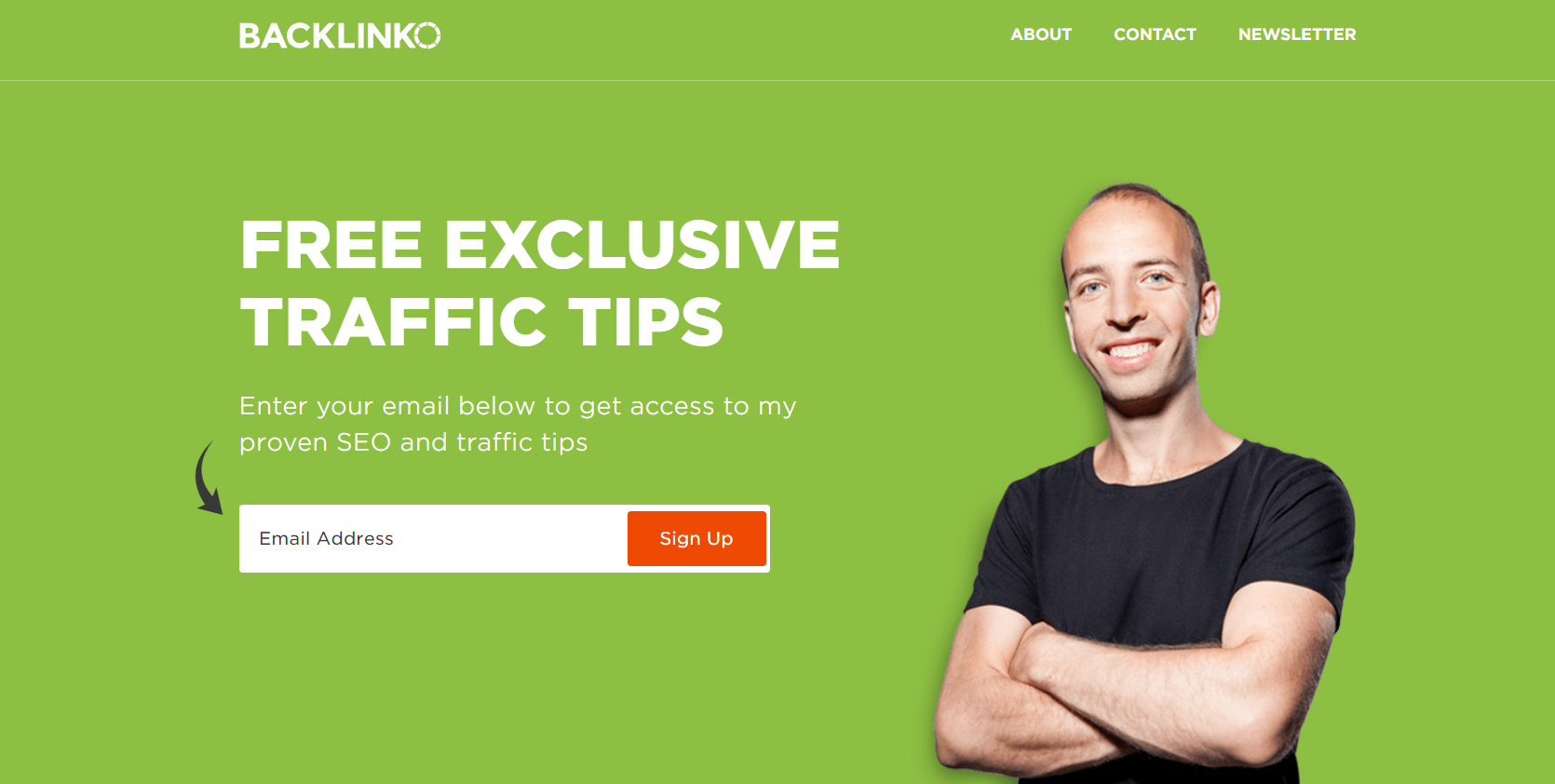
Brian: I started Backlinko because I realized that there were lots of other people out there like me — they wanted to learn more about white hat SEO and white hat link building. But there weren’t any sites with ACTIONABLE content on those topics.
Will: How did Backlinko gain traction in those first few months? Would those same strategies work for people who want to promote their content today?
Brian: The #1 thing I did was promote my content in online communities (ie: forums). In the first 2 months of my blog, 15% of my traffic came from a forum that I was active on.
So as long as you’re not spammy and a legit helpful member of the community (whether it’s a forum or subreddit), this approach definitely still works.
Will: What’s the one period of time in which Backlinko grew the fastest? What would you attribute this period of immense growth to?
Brian: About 4 months after launch traffic started to go up by about 500%. Granted: it’s easy to grow that much when you don’t get that much traffic. But that was when things started to really grow.
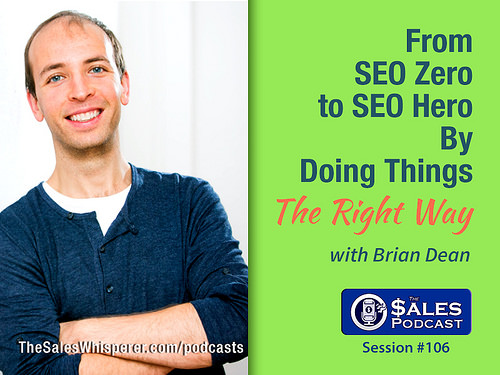
The two things that made the biggest difference was that I started to get my name out there (by guest posting and going on podcasts), which brought me backlinks.
Monetizing Backlinko
Will: Did you have any monetization strategy or endgame baked into Backlinko from the start? Why or why not?
Brian: I knew that I’d offer SEO training. But it took time to figure out what my audience wanted. So I didn’t actually sell my flagship course until almost a year after I started Backlinko. I wanted to make sure I created something people actually wanted.
Will: Other than your SEO That Works course, how else do you monetize Backlinko? Is there a reason why you haven’t created an SEO-related tool?
Brian: We also offer a YouTube SEO course called First Page Videos.
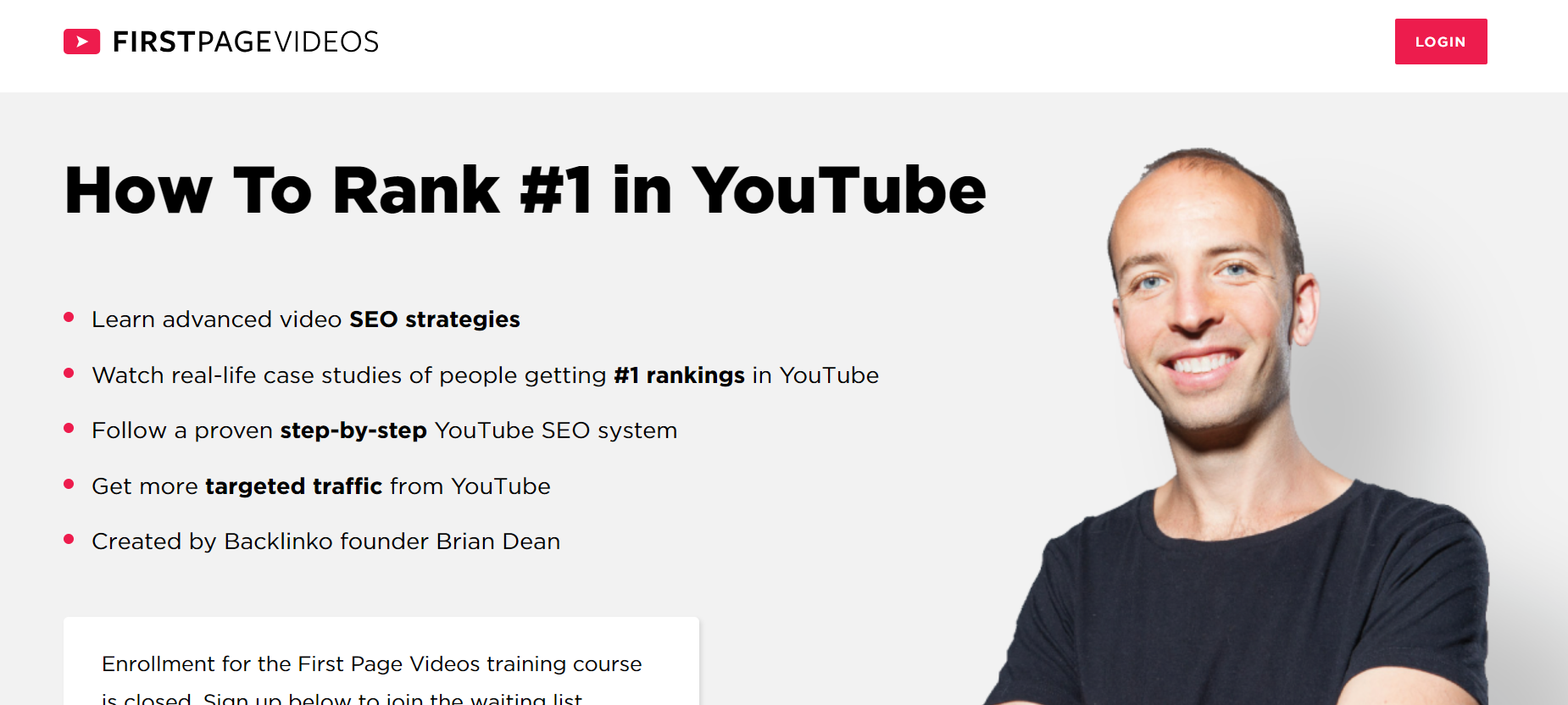
I actually released a beta software product called YoRocket about 2 years ago. People liked it, but I learned quickly that SaaS wasn’t for me. I have much more fun testing strategies and teaching them to people.
Will: How do you publicize or market SEO That Works? Is there a reason why you’re not linking to or plugging the course on Backlinko’s website?
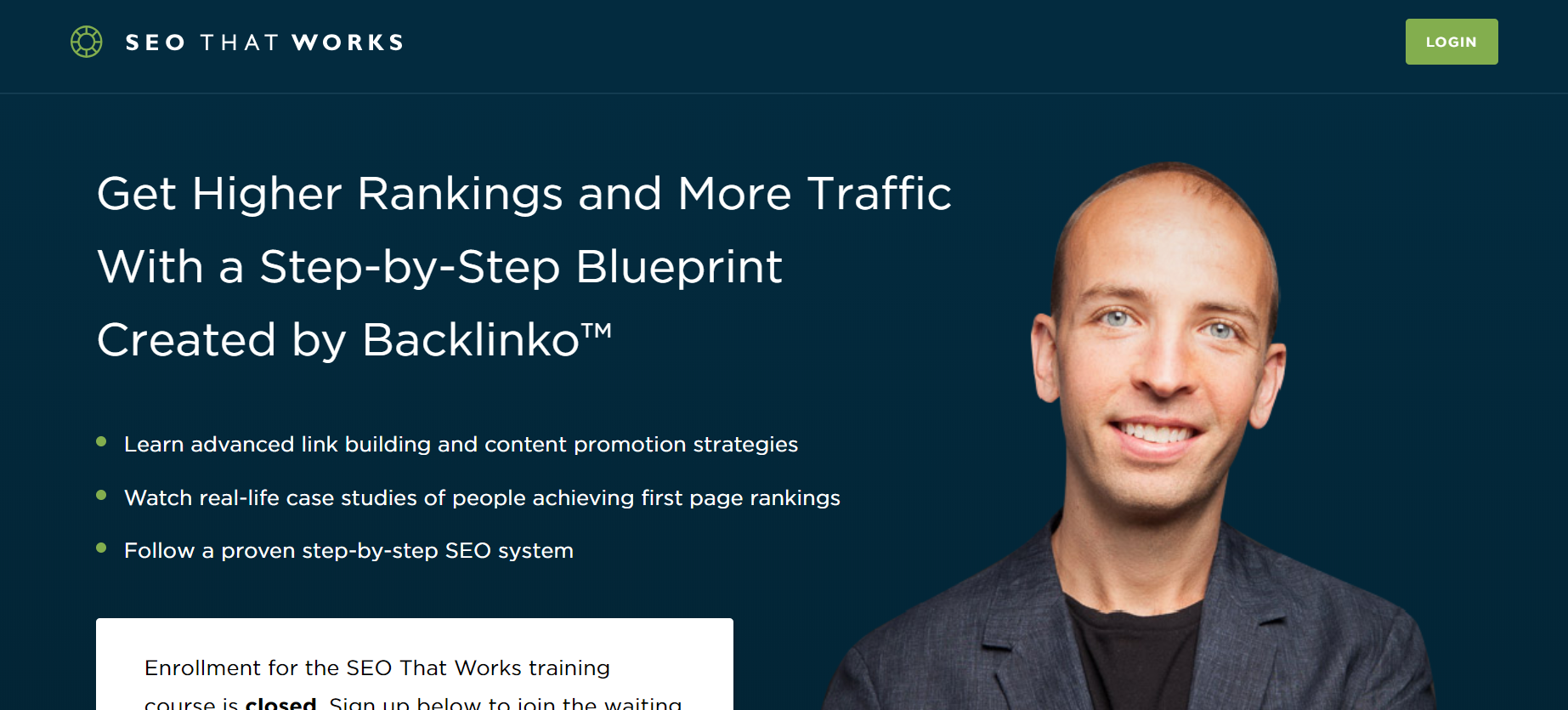
Brian: We don’t plug SEO That Works on the website because we only open enrollment twice a year. And we only announce enrollment openings to email subscribers. So it makes more sense to focus the site on making it easy for people to find awesome content and sign up for the newsletter.
What goes on behind the scenes at Backlinko
Will: On Backlinko’s About Us page, you stated that you learned “the hard way” that there’s a lot more to SEO than “great content”. Could you share more?
Brian: One of the last projects I did before my first hit in 2012 was a blog in the weight loss space. It had “great content” that was significantly better than what was out there. But I didn’t know how to promote it. So it never ranked for anything.
Will: Backlinko is known for publishing high quality, top-notch content. What’s your secret sauce?
Brian:
“My #1 rule is that I write everything.”
That ensures that my insane standard of quality doesn’t get compromised 🙂
Will: Running in the same vein: in SEO, we hear about the importance of evergreen content all the time. What specific strategies does Backlinko employ to produce evergreen content?
Brian: It’s pretty simple — when I’m working on new content, I ask myself: “Will this still be valuable in 3 to 5 years?”
If the answer is no, I don’t consider the topic evergreen and usually move on to the next topic.
Will: Backlinko now reaches over 3 million people every year. What is the one most popular and best-performing blog post that you guys have put out to date?
Brian: The #1 most popular post is probably: Google’s 200 Ranking Factors: The Complete List.
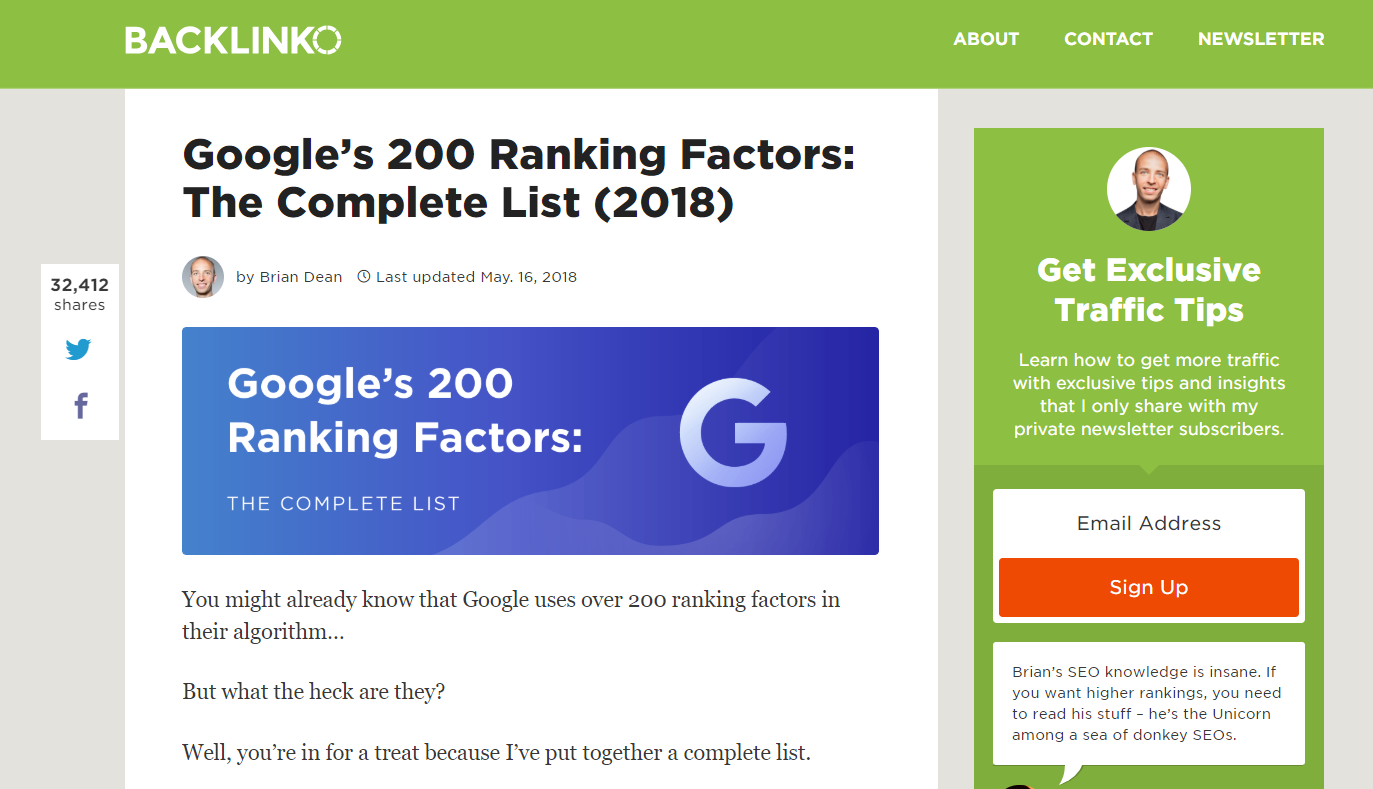
It’s brought in 1,269,466 visitors to date.
Will: SEO aside, what channels do you rely on to promote Backlinko?
Brian: We’ve had a ton of success with YouTube; in fact, it’s our second biggest channel.
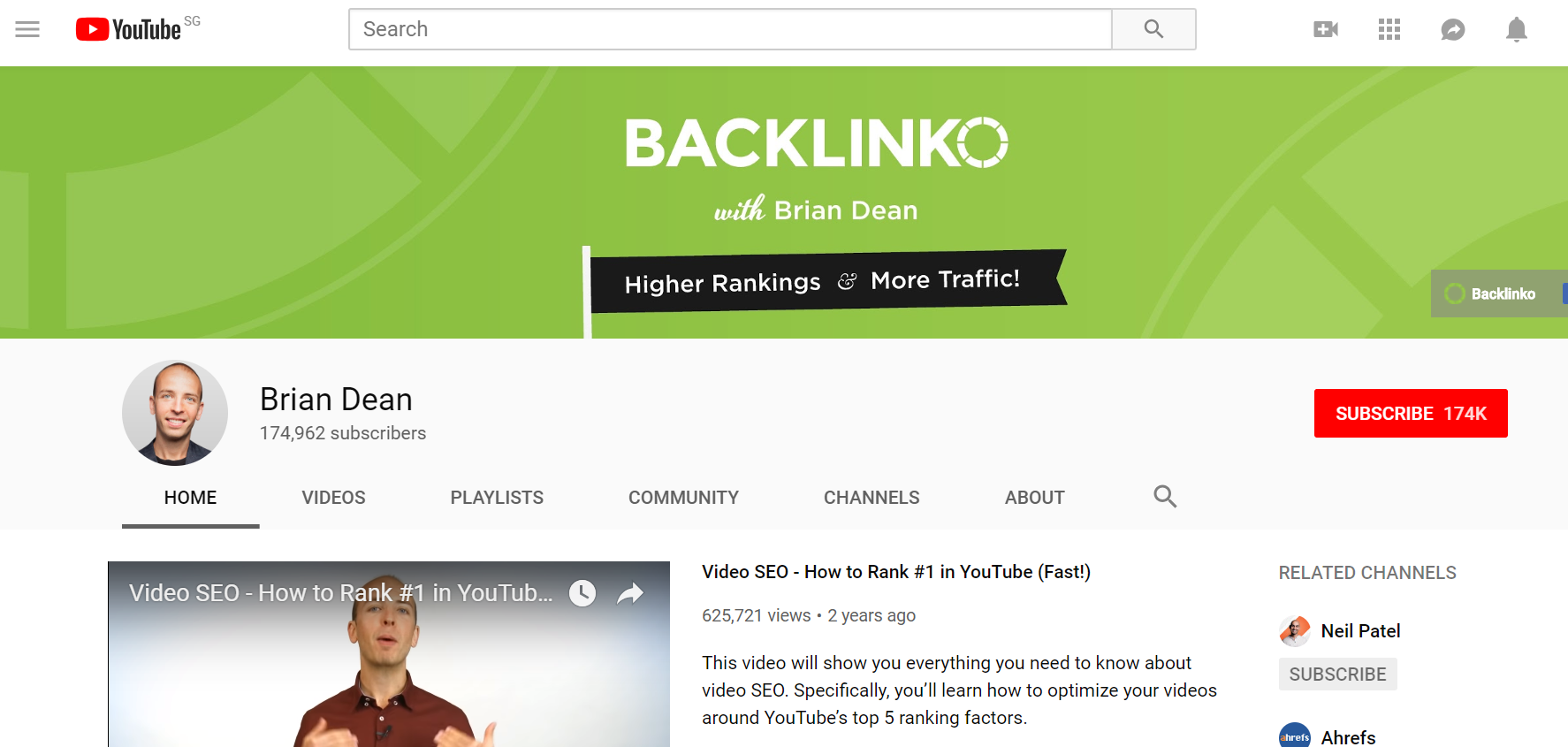
For us, YouTube is an awesome source of traffic — and not just any traffic, but quality traffic. More specifically: people that watch Backlinko videos are much more likely to become email subscribers and customers down the road compared to people that read a text-based blog post.
Will: What is the one thing that you struggled with the most in Backlinko’s early days? What is the thing that you’re struggling the most with right now?
Brian: The #1 thing I struggled with was getting my name out there. I was entering an insanely competitive space full of entrenched websites that had been around for years. It was really hard to stand out in such a crowded market.
Right now, my #1 struggle is scaling. Basically: hiring, creating processes… that sort of thing.
Will: What are the three most important metrics that Backlinko monitors?
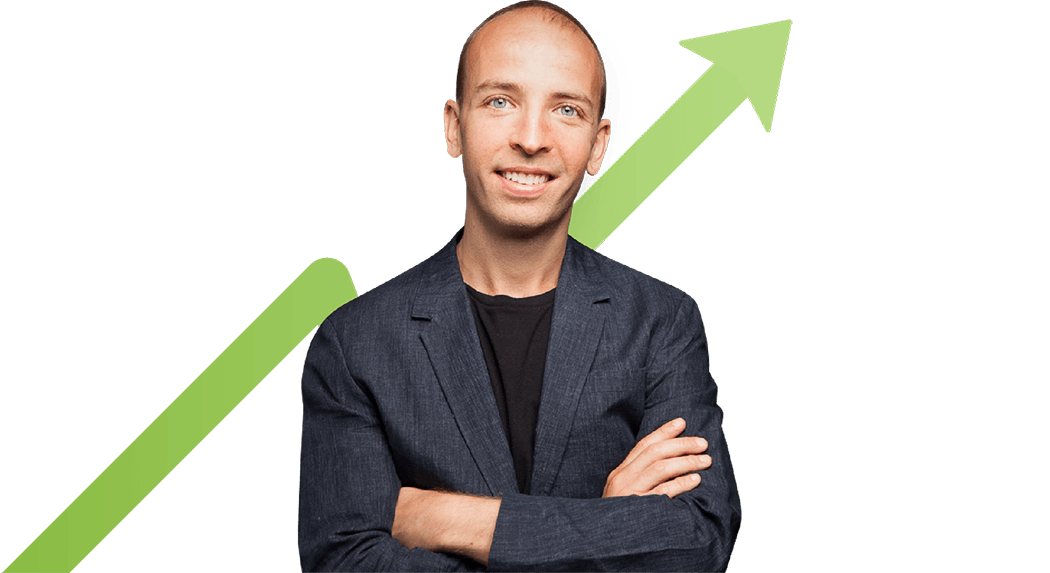
Brian: First is email list growth — this isn’t just important for the bottom line, it’s also a good way to size up how you’re doing with inbound marketing overall.
Second would be sales — and third, organic traffic. This is our #1 traffic channel, so I keep a close eye on it. Plus, I’m obsessed with SEO 🙂
Lifehacks, sources of inspiration, and tips on relaxation
Will: What is your favorite lifehack? (Business or non-business related).
Brian: WALKING. I started closely monitoring my steps a few years ago, and it was an absolute game changer.
I already exercised all the time — but I spent the rest of the time sitting on my butt. Just getting out of the house and walking around has been huge for me.
Will: Which entrepreneur, leader or business owner inspires you the most?
Brian: Definitely Tim Ferriss.
What I respect most about him is that he sticks to his guns and does what he wants. He doesn’t seem to cave to outside pressure, nor does he let other people’s judgements and opinions get to him.
Will: What business tool would you find it hard to live without?
Brian: Aweber, definitely.
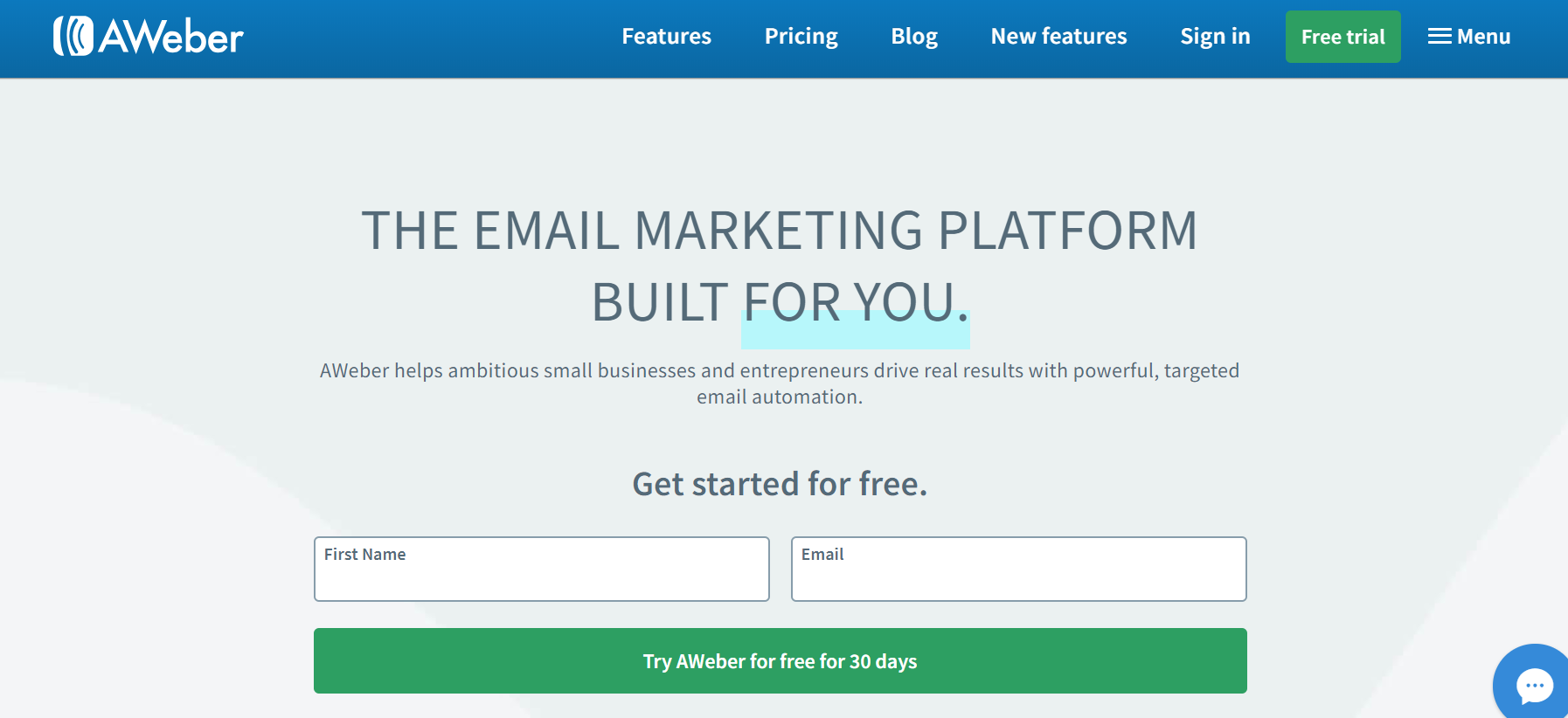
An email list is super important for any online business. I personally use Aweber because it’s easy to use. It’s important to have a tool that you can use to build your audience and communicate with them via email.
Will: What do you do to destress and relax?
Brian: I like to read historical non-fiction. I’m really into pirates right now!



